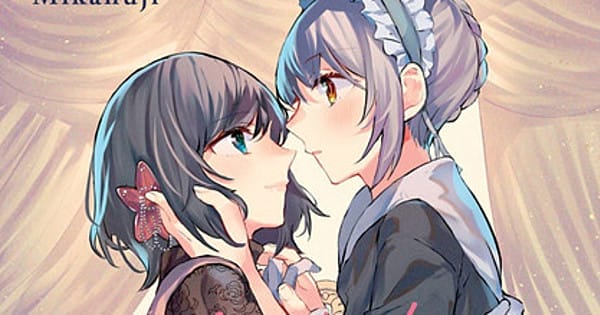
I Do not Desire a Glad Finishing Manga Evaluate
Content Warning: this work contains sexual assault and mention of suicide ideation.
I Don’t Need a Happy Ending is the third Mikanuji book to be published in English, following Assorted Entanglements and Now Loading…! They also contributed a story to the yuri anthology Whenever Our Eyes Meet. Like that book, I Don’t Need a Happy Ending is a collection of unrelated short stories about women trying to find love together but occasionally failing to do so. The stories generally lack the bittersweet element that would make that theme effective, despite the title appearing to imply as much.
The title story is by far the most effective in both weaving a tale of lovely desire and providing us with a satisfactory conclusion. The story revolves around Maria and Roberta, the latter of whom is the sole child of a nobleman and the former, her maid. Maria is ready, though not content, to merely adore her mistress from a distance since Roberta is about to be forced into marriage by her father in order to save the family (though not the name). That changes when Roberta makes a proposal to Maria, claiming that if she’s going to be made to get married, at least she wants to be in charge of her first sexual encounter—ideally with the person she loves. Not only does Roberta admit to developing feelings for Maria, but she also describes it as “losing her virginity,” which is something that isn’t typically mentioned when discussing sex between two women, partly since there were no penises involved in the procedure. Even if virginity is a societal construct, Roberta’s importance in considering her intercourse with Maria as “real” speaks volumes about how deeply she feels about the other woman. It takes place in what appears to be the early twentieth century in Europe. This story is the only one to include an epilogue, demonstrating that despite the title, a happy ending is very much within the woman’s power. It is also the only one to be set outside of modern Japan. The title was intended to suggest that neither Roberta nor Maria require a conventional happy ending, such as marriage to a man, and that they can find their happiness together, according to Mikanuji’s afterword.
Sadly, this novel includes two lowlights; where there are good points, there are equally low points. The stories “I’ll Never Fall in Love with You” and “I Don’t Know What Love Is” trade in nonconsensual and questionable consensual sex, making them both highly unsettling to read. The first tale is the one that should worry us the most. Saara and Sugiya, two high school students who haven’t spoken since elementary school, are the main characters of the story. Saara was mercilessly bullied by Sugiya, who is now uncomfortable with her behavior as a result of Saara’s return. Saara is as well, and she has a strategy. Saara repeatedly rapes and otherwise sexually abuses Sugiya while recording the activities to make sure the other girl acquiesces. The narrative turns to implying that they can have a regular relationship as Sugiya begins to show signs of what she perceives as love for her tormentor (I’m sure we could use a better word here). Perhaps calling it uncomfortable is understating the situation. “I Don’t Know What Love Is” sidesteps some of the similar concerns by having shy Nakamukai, her senpai from both high school and now her college theater club, being dragged around by Hayakawa. Hayakawa continuously criticizes Nakamukai and responds negatively whenever the other young woman chooses to be vulnerable. Although Hayakawa is supposed to be helping Nakamukai come out of her self-effacing shell, the fact that he did neither listen to her nor show any consideration for her feelings gives the whole thing a repulsive air. It comes close to being as uncomfortable as “I’ll Never Fall in Love with You,” albeit not quite.
On the plus side, this book is perfect if you’re seeking for yuri with real sex scenes because, as of the last time I checked, it’s not even listed on Amazon. It’s far more explicit than the typical English-translated yuri, even though it’s not quite as risqué as some BL or heterosexual romance titles. The majority of Mikanuji’s work is also excellent, but his use of profiles suffers greatly, giving the impression that the face is being seen from the side rather than like half of it has been lopped off. Overall, it’s pleasant to look at, and the title narrative does offer a fair sense of an early twentieth-century setting. However, there is a sameness to all of the character designs that can be confusing if you’re reading when fatigued.
I Don’t Need a Happy Ending is a terrible book since it is only as good as its weakest stories. The second and third stories detract from the first, while the fourth and fifth stories are just passably decent despite the excellent quality of the title story and the creator’s annotations. This will satisfy your need for racy yuri, but other than that, I recommend borrowing it from the library rather than purchasing it.


